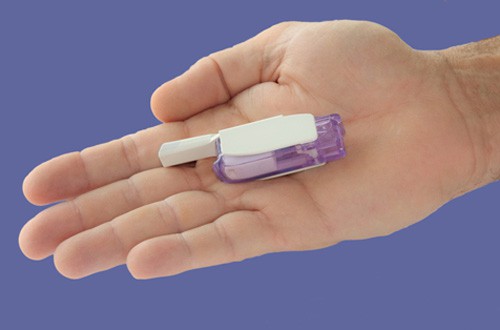
MannKind’s inhaled diabetes therapy Afrezza won the support of an FDA advisory committee yesterday, taking the product to the brink of approval.
The panel voted 13 to 1 that Afrezza (insulin) should be approved for the type 1 (insulin-dependent) form of diabetes, and 14 to 0 in favour of its use in type 2 diabetes, despite concerns raised by the FDA reviewers that it might affect lung function.
Overall, the panel concluded that MannKind had demonstrated that Afrezza was effective in the management of blood sugar in diabetes, and the benefits of an inhaled alternative to insulin injections outweighed the safety concerns.
It is a case of third time lucky for Mannkind, which resubmitted its regulatory filing for Afrezza in the US last October after two earlier rejections by the FDA, most recently in 2011 when it asked for additional clinical trials of the therapy.
MannKind reported the results of two new studies in type 1 and type 2 diabetes last year and – if the FDA follows its panel advice when it delivers a verdict in the coming weeks – it will be the only company with an alternative to injectable insulin on the market.
Pfizer was actually the first company to launch inhaled insulin, marketing its Exubera brand between 2006 and 2007, but was forced to withdraw the drug after lacklustre sales and concerns about the risk of dosing errors with the product’s inhaler device.
The problems faced by Pfizer also prompted Lilly/Alkermes and Novo Nordisk/Aradigm to discontinue their own programmes, despite reaching the phase III testing stage.
MannKind’s shares went on the slide ahead of the meeting yesterday and were suspended from trading, so the endorsement by the advisory panel seems to have caught investors off guard.
The company maintains that its data shows that its inhaled version of insulin may actually be less prone to dosing variability than injections, although its trials were designed to show non-inferiority. Lung delivery is also very quick – with insulin delivery into the blood faster than even rapid-acting injections – and is claimed to mimic the way insulin is delivered by natural human physiology.
Furthermore, on paper the potential for Afrezza is significant. There are around 22 million people with diabetes in the US, and 7 million of those are taking insulin. The incidence of the disease is also rising, with an estimated 500,000 new insulin users every year.
Meanwhile, the market for rapid-acting injectable insulins alone is estimated to be at least $4bn a year, and growing in excess of 20 per cent a year.
Whether MannKind can capture a sizeable chunk of that opportunity will depend on whether patients and doctors get excited about a new inhaled alternative after the Exubera debacle. Analysts have been wary of being too optimistic about its sales potential as many were unsure it would even pass the FDA panel.
Several have been proffering turnover predictions in the region of $500m a year within five years, while MannKind has always insisted the drug has $1bn-plus potential. All now hangs on the FDA, which is due to deliver its verdict on April 15.




